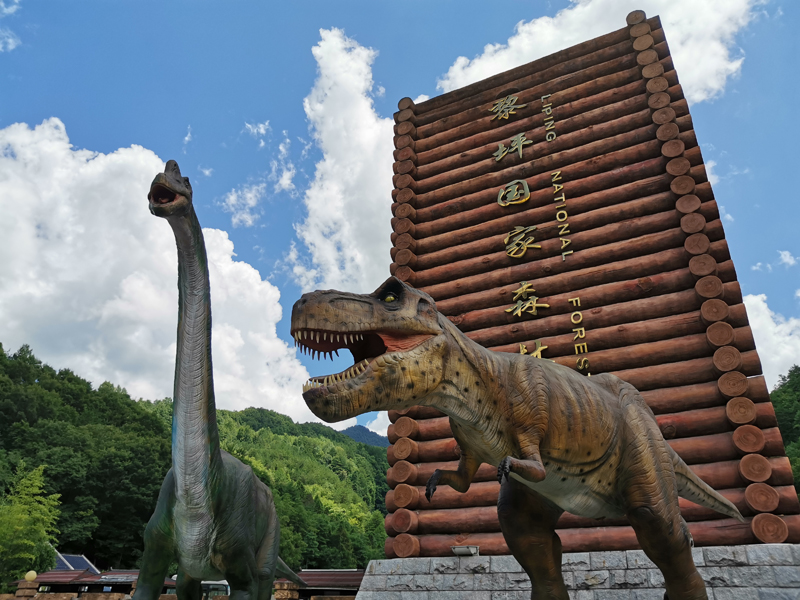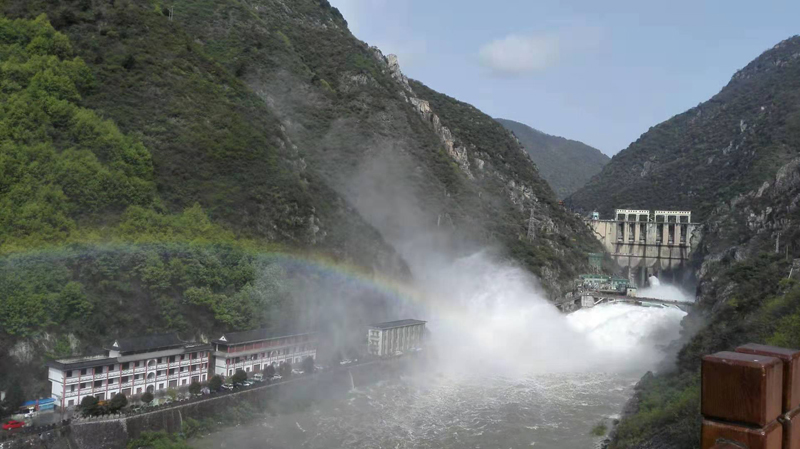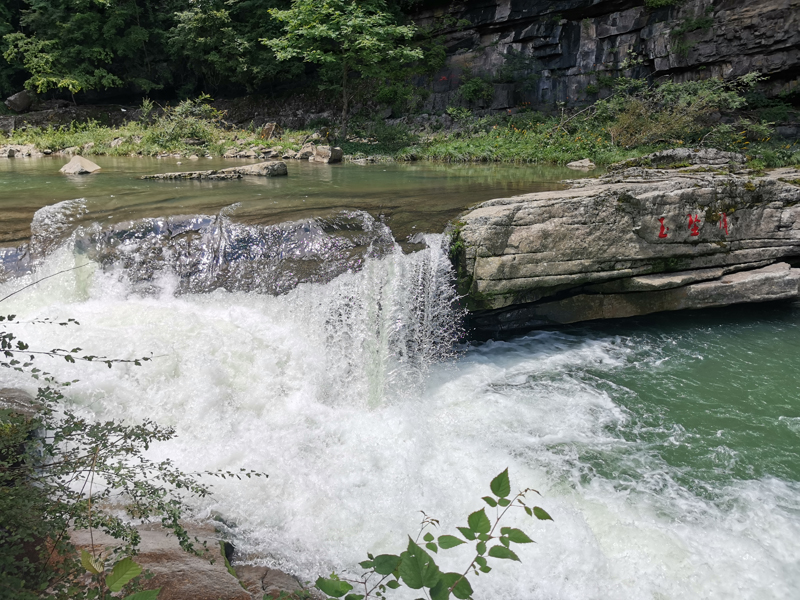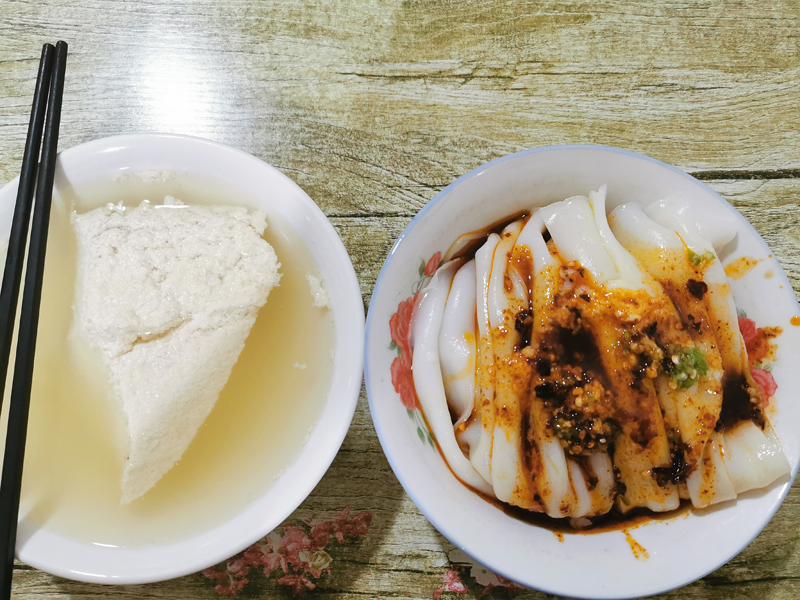The Sixth Original Writing Competition
Senior High School Group
Platinum Award
Written by
Wang Jiajing, Nanzheng Middle School, Hanzhong City, Shaanxi Province, China
Date: May, 2019
I love it when yellow-flowered smoky willow fronds bend low and my schoolmates and I head happily back to school. This is one of my earliest, fondest memories of childhood. “Hanzhong – Blessed by the Passage of Time” is a phrase that long ago took root in my soul and has since grown into a mighty and magnificent tree. The Hanzhong Basin is a congenial cradle, a silvery full moon, framed delicately by the resolute Qinling Range to the north and impassive Daba Mountains to the south. She has accompanied me through more than a dozen full turns of the earth around the sun and shown the way forward to a future brimming with exciting potential.

Her (Hanzhong’s) iconic scenic vistas have persevered across millennia of time. The once-clandestine Baoxie Plank Road played a crucial role in the politics, military affairs, transportation, and communications of ancient China. In more recent times, a 72-meter section of this walkway was reconstructed piece by piece, following the traditional methods and wisdom of the ancient craftsmen who were the original builders of this architectural marvel. The scene is aesthetically balanced by the stone tigers and stone gateway that respectively flank the east and west banks of the river and contrasted by the mountains that fringe the distant horizon. It is a rich and vibrant scene indeed. The rain-fed waters that flow here through Bao Valley are hemmed in by the dense, lush woods along the riverbank. Qingren (Lover), a suspension bridge spanning the river, sways to and fro amidst this verdant natural setting like a tipsy man in a red robe settling in for a pleasant afternoon nap. Larger-than-life figure of the Three Kingdoms Period Zhuge Liang’s grave is here, shaded by ancient cedars, where he sleeps in eternal rest. Majestic, perennially verdant cedars stretch skyward, their canopies spreading 20-some meters above the forest floor. During summer months, the trees are fringed by Chinese trumpet vines in full, spectacular bloom. This is Zhuge Liang’s ‘second home’ and host to a regular stream of visitors from around the world who come to worship and pay their respects. Nanguan Liping is a place of natural majesty, with ruggedly beautiful mountains and a pleasant climate that make it a popular escape from summer’s heat. Lutiao Valley, Xiliu Stream, Cha’er Cliffs, Tianshu Valley, Sword Narrows, and The Daisy Field are the six must-see sights of Liping Scenic Area - an otherworldly escape into the peaceful serenity of pine forests wafting with mellifluous birdsong. Look! Shenying Ridge truly does resemble a goshawk spreading its wings in flight, and Bitan Lake next to Yunu Peak could indeed be a jade pendant lost by a careless mountain fairy. On that day as well, the burnished waters of Jingyuan Lake appeared ever so similar to the reflective face of a brass mirror abandoned by some fairy after finishing her ablutions. Viewing this flawless realm of the fairies cannot but gladden the heart. Although getting there is not easy, the experience makes the effort more than worthwhile.

She is a historical treatise of renowned literati penned indelibly upon bamboo slats. Many centuries ago, Zhang Qian forged China’s path westward as ‘father’ of the Silk Road, Li Gu was an upright scholar-official of the Eastern Han, and Bao Si’s beauty inspired a king to foolishly ignite the beacons of his realm for her pleasure. More recently, Fang Jizhong created world-class ink wash paintings, Wei Futang was a leader of the Red Gang and an officially sanctioned member of the enlightened gentry, and He Tingying fought in the 1927 Autumn Harvest Uprising and sacrificed his life to the Revolution. Today, Ha Hui plays the zither with refined elegance, Hu Die anchors CCTV’s national Morning News program, and novelist Hong Hua has met with worldwide success. Across the change of seasons and the march of time, the intelligence and wisdom of the people of Hanzhong abide.
She is a nostalgic arrow to the heart. I still clearly remember as the moon rose into the night sky, Grandma soaking rice in spring water and, the day after, grinding the softened rice into rice milk, which she then cooked in bamboo steamers. The process wasn’t finished until, white as lambskins, the steamed rice milk had been transformed into fresh rice noodles. No one at the time imagined that hungry me was already at my breaking point. Even though barely as high as the stove, I could drink a whole bowlful in one gulp and then immediately finish off a brimming bowl of stir-fried vegetables and tofu. The taste was truly brilliant; something that all of the money in the world couldn’t buy. Known as ‘palace gourmet’ in earlier times because of the skill and care required in preparation, dishes such as this indubitably add a sense of ceremony to home-cooked meals today. Indeed, they are must-serve dishes when friends come to call over important holidays. Even today, the children of Hanzhong, returning from wherever their lives and careers have taken them, eagerly find their way to street-side shops in the city to enjoy a piping hot bowl of spicy Hanzhong rice noodles. A full stomach is requisite for doing anything worthwhile. Taking on the world with one foot planted firmly in home and hearth aptly describes the deep affection invested by the people of Hanzhong in their traditional rice noodles.

Today, she is a place of history and rich heritage. Sparrow’s tongue and Wuzi teas are subtle and unassuming, while Mingmei and Yinsuo are sincere to a fault. These are Hanzhong’s four ‘celestial’ teas, each with their own distinctive aromas and flavors. The rapeseed flower fields of March stretch as far as the eye can see are fodder for the creative imaginings of countless artists. The vibe of this yellow-pixelated landscape attracts recreational cyclists and others seeking solace and an escape from everyday cares. The high-speed railway cuts through this sea of yellow like a knife, bringing the world and heralding the future, while taking with it wonder and expectation.

I miss your dehaasia laurels decked in powdery perfection
I honor your victories won with glinting spears and armored horses;
I shall be with you always, from dew to frost!
Reviewer 1:
The author provides in this essay a rich description of her hometown of Hanzhong. After first offering a spatial context, she hones in on topics including the area’s long history, natural beauty, culture, and architecture. Next, she focuses on well-known people from Hanzhong past and present to show how their intelligence and wisdom have had lasting impacts across time and space. Hanzhong rice noodles are used by the author to convey her deep feelings and as a repository for her childhood and close emotional attachments to family and place. The story’s message is underpinned by copious knowledge. Affections infuse this essay in elegant turns of phrase and a well-structured presentation.
Reviewer 2:
The author approaches her subject from three angles: scenery, history, and emotions. Her efforts successfully generate compelling descriptions of Hanzhong’s grand scenic beauty, historically important figures, and her grandmother’s homemade rice noodles. The author’s writing, both bold and beautiful, strike at the heart of the reader.
